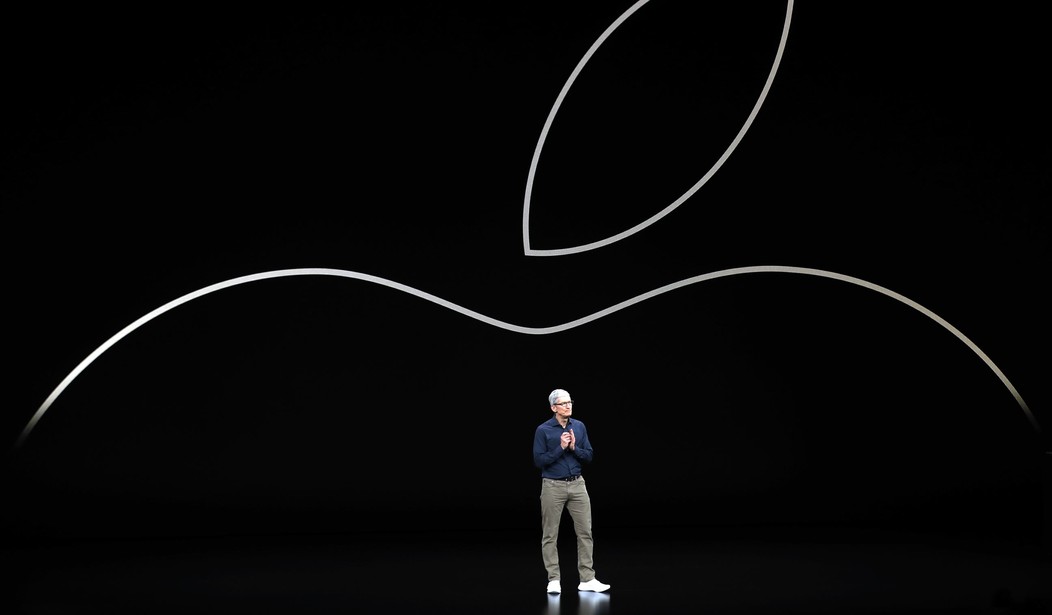For many years, defenders of free and open digital ecosystems have warned that various proposed regulations would “break the internet.” Advocates of those proposals have scoffed, insisting that heavy-handed regulatory regimes preclude neither consumer choice nor innovation. Markets — like the humans who form them — are resilient and flexible. But the European Union’s (EU) recent regulatory misadventures evidence the fact that markets’ plasticity is finite and that it has a breaking point.
One such breaking point has been reached: Apple recently announced that it will withhold new features — most notably its artificial intelligence (AI) tool, Apple Intelligence — from European users. Observers should not underestimate the significance of a major tech company blocking a major market’s access to a groundbreaking new feature. In a statement, the company attributed the decision to the Europe’s Digital Markets Act (DMA), a cumbersome competition law that regulates so-called digital “gatekeepers,” such as Apple, Meta, and Amazon. “Specifically,” Apple said, “we are concerned that the interoperability requirements of the DMA could force us to compromise the integrity of our products in ways that risk user privacy and data security.”
The lesson is clear: As regulators continue to jackhammer away at the online markets, they will fracture them. Tech companies simply cannot comply with onerous restrictions and, simultaneously, innovate and provide maximally useful, innovative, and secure products. No matter how inconvenient to technocratic aspirations, policymaking remains the science of weighing inescapable tradeoffs.
Over time, the EU’s tech regulation has become ever more invasive, and its results, ever more costly. Europe’s approach has already produced a lethargic and uncompetitive continental tech sector, forcing its citizens to rely heavily on American firms’ devices and software. Indeed, almost all the companies with sufficient market power to qualify as “gatekeepers” under the DMA hail from the United States. European consumers now must prepare to have their American-made technologies (further) compromised.
Recommended
Ultimately, Europe’s regulatory micromanagement stems from a distrust of democracy — not of the democracy of the ballot but of the democracy of free exchange. With their wallets, consumers in Europe, America, and elsewhere have made clear their preference for many digital features that the DMA seeks to constrain or ban. Many consumers want non-interoperable products, which, while restrictive, can provide unique features and better security. They happily choose app stores’ constraints to avoid the risks of total freedom. They prefer search engines that promote more reliable and useful results, even should it disadvantage smaller competitors. European regulators have disregarded these expressed preferences, instead imposing their own myopic economic preferences on the consumers whom they claim to protect.
Europe’s regulatory record demonstrates as much. The General Data Protection Regulation, which took effect in 2018, eliminated one third of available applications on the Google Play Store and halved new entrants thereto. In such efforts as its recurring suits against Microsoft, its competition policy has proved farcically confused and detrimental to consumers. Now, with the DMA — and its sister law, the Digital Services Act (DSA) — Europe has further extended its regulatory reach across borders, seeking to micromanage the business models of the American tech companies on whose products the world relies. These efforts have edged European consumers closer to technological regression — complete with degraded user choice and partial or no access to cutting-edge products that American consumers will continue to enjoy. Even European governments have admitted tacitly that the DMA will also weaken cybersecurity, an especially alarming concern given the number of cyberattacks that happen every day.
Economist Frédéric Bastiat wrote that regulation’s second-order effects — “that which is not seen” — usually elude all but the most careful observers. The dynamic Bastiat observed becomes more acute in tech policy, since the digital world’s incorporeal nature further shrouds bad tech policy’ unseen consequences. This convinces many policy-makers — even some who otherwise understand economics — that knowledge problems and errors of statism may not affect online markets.
As the Europeans have discovered, the laws of basic economics obtain everywhere. Applying too much force to the system will cause it to snap. And as regulation escalates from burdensome to impossible, regulated companies and their customers will simply lose entire categories of products, services, and opportunities.
Politicians and rulers throughout time have disbelieved in the potential of even their most gratuitous abuses to go wrong and produce disastrous outcomes. “Not all the water in the rough rude sea // Can wash the balm off from an anointed king,” says the eponymous king in Shakespeare’s Richard II, shortly before losing his crown and his life. Overreaching European tech regulators — high on a healthy dose of hubris — are discovering disastrous consequences to be not only possible, but inevitable.
David B. McGarry is a policy analyst at the Taxpayers Protection Alliance.

























Join the conversation as a VIP Member